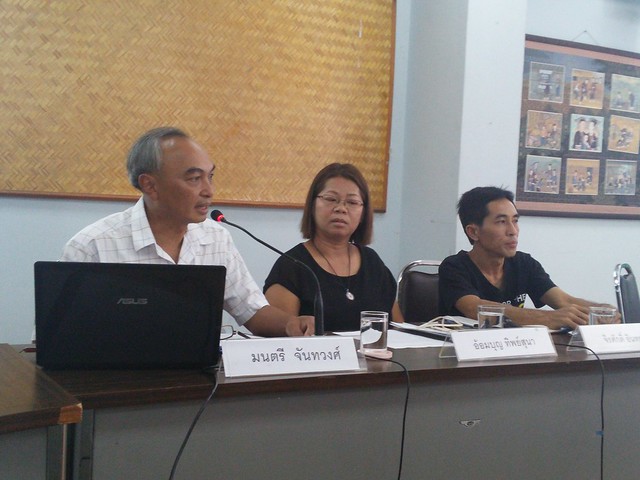China has controlled the water level in the Mekong for more than two decades and it is ruining local people’s way of life in the downstream countries, says civil society.
China released water from a dam in Yunnan inside China claiming that this policy aims to ease drought among Mekong downstream countries
(further detail). However, this caused a sudden increase of water levels in the Mekong and had a large effect on local people downstream.
In response to such policy, The Network of People in Eight Mekong Provinces held a seminar “Mekong River: Whose River is it? Is China Really Saving Us From Drought?” at the Thai Volunteer Service Building, Bangkok.
At the discussion, Montree Chanthawong, from the Foundation for Ecological Recovery, said that China has arbitrarily controlled upper Mekong River for 23 years. Therefore, the recent sudden flood on the Mekong is actually nothing new, but the problem is China trying to claim this is for the benefit of downstream countries, which is absolutely not true.
“The purposes of the six Mekong dams in China are electricity generation, commodity shipping and reserving water during rainy season. China never cares about downstream local people at all.” Said Montri.
Montri added that before the first dam, the Manwan dam, was constructed in 1993, the water level went up and down naturally and predictably, but since China has finished building six dams, the water level has fluctuated unpredictably.
This major change directly affects the local’s way of life in term of agriculture, fishing, tourism and ecological system.
Ormbun Thipsuna, from the Community Council of Seven Mekong Sub-districts, said that according to ecological studies, the Mekong has at least 20 fishing areas within Thai territory.
Previously, local people demarcated those areas and promised not to encroach on one another, but they cannot do that anymore since the fluctuation of water levels has destroyed most of the fishing areas.
After the seminar, the network read a
statement demanding that governments of six Mekong countries -- China, Thailand, Cambodia, Laos, Myanmar and Vietnam -- listen to the downstream local communities and postpone the further construction of dams on the Mekong.



